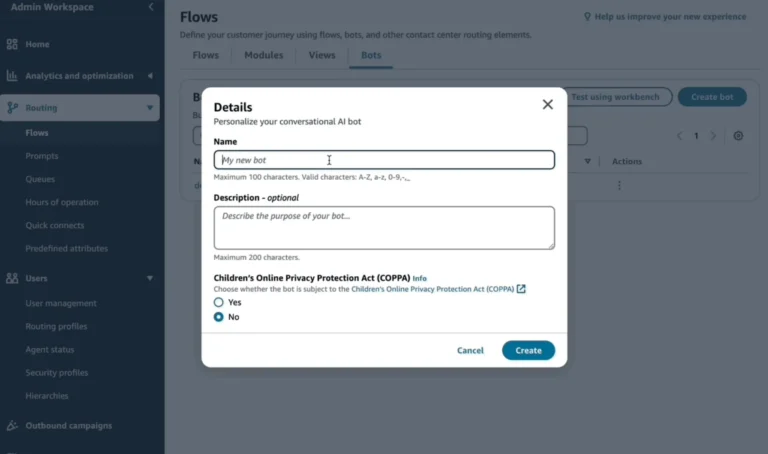Trending Article
Meta’s Llama AI Models Power U.S. National Security, Defense, and Open Source Innovation
Meta‘s open source Llama AI models are gaining place in a variety of the most impactful sectors–all the way from national security and defense to innovation through the private sector. This move further reifies the commitment of Meta in respect to supporting U.S. national security: its availability to U.S. government agencies, including those who find themselves in defense and intelligence. It’s also working closely with top industry partners, such as Accenture Federal Services, Amazon Web Services, Lockheed Martin, Microsoft, Oracle, and many others, to implement Llama in applications that augment the effectiveness and capabilities of government and defense operations.

Impact on U.S. National Security and Defense
One of the largest uses of Meta’s Llama models is in supporting efforts toward U.S. national security and defense. The Llama models are designed for high-volume data processing with actionable insights. Such AI is being used by multiple government agencies to optimize logistics, enhance cyber defense capabilities, and improve decision-making processes. Llama models have been fine-tuned to specific national security missions to include planning operations, identifying vulnerabilities, and providing insight into adversaries’ tactics.
Companies such as Scale AI and Lockheed Martin are already putting Llama to use in ways that directly advance those critical missions. For instance, Scale AI uses the models to help national security teams plan and execute operations. Lockheed Martin has even included Llama in its AI Factory to accelerate AI-driven solutions for business processes, data analysis, and code generation. Llama models are already being hosted on Amazon Web Services (AWS) and Microsoft Azure with trustworthy cloud platforms for government agencies dealing with sensitive data.
Another collaboration is through IBM’s watsonx solution, in which Meta has partnered with other leading technology players to bring Llama to national security agencies for deployment in self-managed data centers. This partnership has been instrumental in modernizing defense systems, and these efforts ensure that the capabilities of the U.S. military remain on the technological frontier.
Advancing Government Services through Open Source AI
Meta’s Llama is not only helping the defense and national security but is also helping bring improvements in public services throughout the U.S. government. The government is working with its private sector partners, including Deloitte, on Llama models in such areas as education, energy, and small business development. Agencies can improve operational efficiency and better serve the public by bringing AI to public sector functions.
For instance, Oracle is using Llama to create long technical documents for aircraft maintenance so that the technicians can troubleshoot faster and more accurately. This application significantly reduces the aircraft’s downtime on defense and national security missions. Similarly, partner-developed solutions like Accenture Federal Services, using Llama, help agencies overcome challenges in educational sectors through skilled trades and energy management areas.
These public-private partnerships have come to symbolize something much larger in recent years-the role of AI in driving progress and advancing many different industries, further empowering government agencies to bring the power of open-source AI to bear on major societal challenges.
A Roadmap for Open Source AI Leadership
Therefore, Meta’s arguments highlight the relevance of open-source AI as a tool in promoting both security and innovation. The company is strongly committed to furthering U.S. leadership in the global competition for AI; the company emphasizes national security and technological sovereignty.
Open-source software has been one of the cornerstones of technological development in the United States, particularly in defense systems. Tools such as Linux and Android enable the United States to take a front-row seat in many high-end computing fields and cybersecurity fields. Likewise, Meta’s open-source Llama models may be considered strategic for continuing the leading role of America in AI development.
The U.S. government and its allies are all too well aware of the escalating AI capabilities in competing nations, such as China, that have spent billions of dollars developing open-source AI models. The United States, in racing to develop a more sophisticated AI system, has established itself as the leader through open-source standards for the development of AI. Meta’s Llama is significant in its pursuit toward this end as it will aid the U.S. in the establishment of a global lead in the ethical, open, and accountable development of AI technologies.
Open-source AI models like Llama are going to really influence the global standards on AI technologies. Just like how the open-source projects, Linux and Android, saturated the landscape of technology, it is anticipated that the AI models will do so in the future.
A global shift toward an open-source standard for AI models will come with its share of challenges and opportunities. This can open up the possibilities of more countries contributing to and benefiting from AI innovations. However, it raises concerns on security, ethical use, and the possibility of weaponizing or misusing AI models. Therefore, the open-source AI models that come out should be based on strong principles of openness, transparency, and accountability.
The key objective here is to create an open-source AI approach, which will include products like Llama, for a free, democratic values-based global ecosystem. Such standards will make Meta’s Llama work with the full scope of democratic values concerning AI, particularly in cases where it will be implemented in military and defense roles. Indeed, as all countries gradually start using more AI tools in national security and defense spheres, it will be vital that these weapons are deployed responsibly and follow international law.
Ethical AI and International Standards
As Llama models continue to gain speed, Meta is also paying close attention to responsible and ethical usage. This is key, as the models are becoming increasingly adopted by national security agencies and defense contractors. The aim is for AI to support peace and security rather than undermine it.
Meta encourages the US and its partners to maintain a “virtuous circle” where technological superiority is coupled with the ethics of innovation, in this case AI, which will be beneficial for society. It aspires toward contributing to open-source AI and creating an environment from which progress brought about from AI-driven development would benefit the greater public good and national security.
The United States and its allies are also working on establishing international guidelines for the application of artificial intelligence in the military, for instance, the deployment should be done responsibly so that it is in agreement with democratic standards. Examples include principles as stated in the Political Declaration on Responsible Military Use of Artificial Intelligence and Autonomy to ensure responsible AI applications and stay aligned with international laws.
Encouraging Global Co-Operation and Innovation
Apart from contributing towards the development of tools through the U.S. government agencies, Meta’s Llama models are being put towards supporting efforts on the globe. For example, a translation interface that it helped develop, partnering with UNESCO, has the power behind it coming from the NLLB AI model in Meta. The effort of this cooperation is to increase the quality of access to high-income translation services for marginalized groups and low-resource languages; to foster more global efforts toward filling the communication gap.
Not just for advancing U.S. interests but to make sure AI is a force for good all around the world, Meta commits itself to open-source AI. Responsible AI development and ethical deployment are further enhanced with this action as Meta creates the basis of a safer, more prosperous world.











